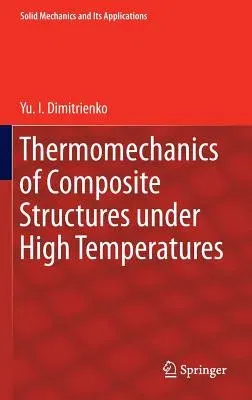This pioneering book presents new models for the thermomechanical
behavior of composite materials and structures taking into account
internal physico-chemical transformations such as thermodecomposition,
sublimation and melting at high temperatures (up to 3000 K). It is of
great importance for the design of new thermostable materials and for
the investigation of reliability and fire safety of composite
structures. It also supports the investigation of interaction of
composites with laser irradiation and the design of heat-shield systems.
Structural methods are presented for calculating the effective
mechanical and thermal properties of matrices, fibres and
unidirectional, reinforced by dispersed particles and textile
composites, in terms of properties of their constituent phases. Useful
calculation methods are developed for characteristics such as the rate
of thermomechanical erosion of composites under high-speed flow and the
heat deformation of composites with account of chemical shrinkage.
The author expansively compares modeling results with experimental data,
and readers will find unique experimental results on mechanical and
thermal properties of composites under temperatures up to 3000 K.
Chapters show how the behavior of composite shells under high
temperatures is simulated by the finite-element method and so
cylindrical and axisymmetric composite shells and composite plates are
investigated under local high-temperature heating.

